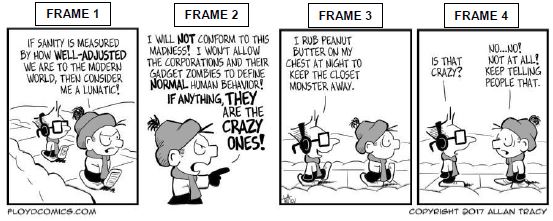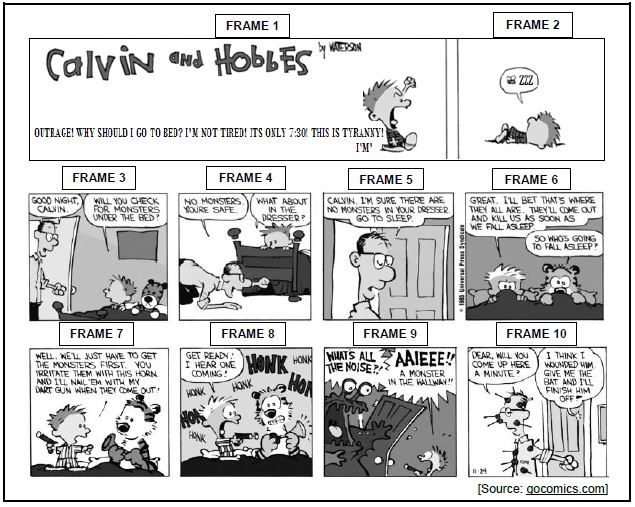ENGLISH HOME LANGUAGE PAPER 1 GRADE 12 QUESTIONS - NSC EXAMS PAST PAPERS AND MEMOS MAY/JUNE 2021
Share via Whatsapp Join our WhatsApp Group Join our Telegram GroupENGLISH HOME LANGUAGE PAPER 1
GRADE 12
NATIONAL SENIOR CERTIFICATE EXAMINATIONS
MAY/JUNE 2021
INSTRUCTIONS AND INFORMATION
- This question paper consists of THREE sections:
SECTION A: Comprehension (30)
SECTION B: Summary (10)
SECTION C: Language in context (30) - Read ALL the instructions carefully.
- Answer ALL the questions.
- Start EACH section on a NEW page.
- Rule off after each section.
- Number the answers correctly according to the numbering system used in this question paper.
- Leave a line after each answer.
- Pay special attention to spelling and sentence construction.
- Suggested time allocation:
SECTION A: 50 minutes
SECTION B: 30 minutes
SECTION C: 40 minutes - Write neatly and legibly.
SECTION A: COMPREHENSION
QUESTION 1: READING FOR MEANING AND UNDERSTANDING
Read TEXT A and TEXT B below and answer the questions set.
TEXT A
TEENS STRUGGLE TO COMBAT CONFORMITY
[Adapted from www.dailyrecord.com] |
GLOSSARY:
1goths: a group of anti-establishment young people who define themselves by their black clothing, dramatic black make-up and black hair
AND
TEXT B
[Source: floydcomics.com]
QUESTIONS: TEXT A
1.1 Explain why the writer refers to the episode of Twilight Zone in paragraph 1. (2)
1.2 Refer to paragraph 2.
What is the purpose of this single-sentence paragraph? (2)
1.3 Refer to paragraph 3.
Give TWO reasons for teenagers' desire to conform. (2)
1.4 Explain, in your own words, the argument that the writer presents in paragraph 4. (2)
1.5 Comment on how 'fake it until you make it' (line 23) contributes to the understanding of the mindset of young people. (3)
1.6 Discuss the paradox evident in paragraph 6. (3)
1.7 Critically discuss the implications of the statement that 'diversity has been lost' (line 33) in the context of paragraph 7. (3)
1.8 Refer to paragraph 9.
Do you think that the Ash Experiment made a meaningful contribution to the investigation on conformity? Motivate your response. (3)
QUESTIONS: TEXT B
1.9 Study the boy in the cap in FRAMES 1 and 2.
Discuss what the visual and verbal texts reveal about his character. (3)
1.10 Critically assess the logic of the boy's statement in FRAME 4, 'NO…NO! NOT AT ALL! KEEP TELLING PEOPLE THAT.' (3)
QUESTION: TEXTS A AND B
1.11 Does TEXT B support paragraphs 10 and 11 of TEXT A? Provide a critical evaluation in your response. (4)
TOTAL SECTION A: 30
SECTION B: SUMMARY
QUESTION 2: SUMMARISING IN YOUR OWN WORDS
TEXT C provides insight into the positive effects of stress. Summarise, in your own words, the beneficial impact of stress on individuals.
NOTE:
- Your summary should include SEVEN points and NOT exceed 90 words.
- You must write a fluent paragraph.
- You are NOT required to include a title for the summary.
- Indicate your word count at the end of your summary.
TEXT C
UNDER PRESSURE: Stress has become a defining feature of the 21st century, contributing to the mental health crisis. But it is not always the villain it is made out to be. Daniela Kaufer, a neuroscientist says, 'There's this perception that stress is always bad for the brain, but that's not true. Your stress response is crucial to your survival.' It is important for alertness. Stress also prepares you to adapt to the next thing that comes along. The notion of eustress (the 'eu' prefix is from the ancient Greek for 'well' or 'good') makes intuitive sense. People can tell when the feelings associated with adrenaline gets them going. 'Stressful situations,' she says, 'actually tend to push our performance.' This effect with which experts are well acquainted, takes one out of one's comfort zone and improves one's overall well-being. When pushing ourselves through a eustress situation, we have to focus in a way that we've not done before. This doesn't mean we should overdo things. If the balance tips from eustress to distress, the positive effects are inhibited. So, embracing more situations that are scary but don't pose any serious threat – riding rollercoasters, public speaking, job interviews – is strongly encouraged. 'Another key reason why we all need to know about eustress,' says Richard Stephens, 'is that it is possible to convert distress into eustress by reframing stressful situations as positive challenges – and reaping the benefits.' When it comes to the effects of stress, perspective is king. 'This is where we end up talking about emotion regulation, which is the idea that we apply different strategies to experience favourable outcomes. Get used to your emotions and learn to live with them and be more accepting of them rather than trying to over-manage them,' says Stephens. Kaufer's research has found that the energy and arousal associated with eustress can combat fatigue. She says that 'people with indicators of eustress – feeling happy or experiencing more meaningfulness during the workday – generally experienced lower levels of fatigue overall.' If we are struggling to see the positives in a situation, remember some stress is desirable and even necessary, because that's how we demonstrate that we are active in the world. Without challenge comes boredom. [Adapted from theguardian.com] |
TOTAL SECTION B: 10
SECTION C: LANGUAGE STRUCTURES AND CONVENTIONS
QUESTION 3: ANALYSING ADVERTISING
Study the advertisement (TEXT D) below and answer the set questions.
TEXT D
[Source: philpoteducation.com]
The text in small font reads as follows:
You won't find anything artificial about Heinz Tomato Ketchup. No artificial thickeners. No artificial preservatives. No artificial colouring. No artificial flavour. They just don't grow in Heinz ketchup bottles. No other ketchup tastes like Heinz |
QUESTIONS: TEXT D
3.1 What is the purpose of using, 'It's only natural…' in the headline? (2)
3.2 Discuss the persuasive appeal of the slogan. (2)
3.3 Discuss how the visual image supports the overall message of the advertisement. (3)
3.4 Comment on TWO techniques used by the advertiser to promote the product. (3)
[10]
QUESTION 4: UNDERSTANDING OTHER ASPECTS OF THE MEDIA
Study TEXT E and answer the set questions.
TEXT E: CARTOON
[Source: gocomics.com]
QUESTIONS: TEXT E
4.1 Account for the size of FRAME 1. (2)
4.2 Refer to FRAMES 3–5.
Suggest a reason for the father's reaction in FRAME 5 to the boy's request. (2)
4.3 Discuss the cartoonist's portrayal of Calvin's change in attitude in FRAMES 6, 7 and 8. (3)
4.4 Critically discuss how FRAMES 9 and 10 contribute to humour in this cartoon (3)
[10]
QUESTION 5: USING LANGUAGE CORRECTLY
Read TEXT F, which contains some deliberate errors, and answer the set questions.
TEXT F
THIS IS WHAT 'ADULTING' MEANS
[Adapted from time.com] |
QUESTIONS: TEXT F
5.1 'The linguistics journal American Speech has offered these definitions of the verb "adult" ' (lines 3–4).
Rewrite the above sentence in the passive voice. (1)
5.2 Write down the gerund from paragraph 2. (1)
5.3 'The millennials,' said a lexicographer at dictionary.com, 'are going through life stages that other generations have gone through much later in life, like starting families and owning homes' (lines 7–9).
Rewrite the above sentence in reported speech. (2)
5.4 Correct the single word error in paragraph 3. (1)
5.5 Account for the use of dashes in paragraph 4. (1)
5.6 Remove the tautology in paragraph 4. (1)
5.7 Correct the pronoun error in paragraph 5. (1)
5.8 A prefix has been used incorrectly in the last sentence (lines 15–17).
Rewrite the word, using the correct prefix. (1)
5.9 Provide an adjective that would be considered Formal English to replace the word 'hip' (line 16). (1)
[10]
TOTAL SECTION C: 30
GRAND TOTAL: 70


